Related Research Articles

Richard Burton Matheson was an American author and screenwriter, primarily in the fantasy, horror, and science fiction genres.

Christopher William Bradshaw Isherwood was an Anglo-American novelist, playwright, screenwriter, autobiographer, and diarist. His best-known works include Goodbye to Berlin (1939), a semi-autobiographical novel which inspired the musical Cabaret (1966); A Single Man (1964), adapted as a film by Tom Ford in 2009; and Christopher and His Kind (1976), a memoir which "carried him into the heart of the Gay Liberation movement".
The year 1919 in film involved some significant events.
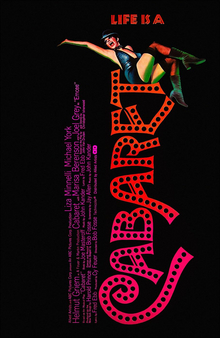
Cabaret is a 1972 American musical period drama film directed by Bob Fosse from a screenplay by Jay Allen, based on the stage musical of the same name by John Kander, Fred Ebb, and Joe Masteroff, which in turn was based on the 1951 play I Am a Camera by John Van Druten and the 1939 novel Goodbye to Berlin by Christopher Isherwood. It stars Liza Minnelli, Michael York, Helmut Griem, Marisa Berenson, and Joel Grey. Multiple numbers from the stage score were used for the film, which also featured three other songs by Kander and Ebb, including two written for the adaptation.
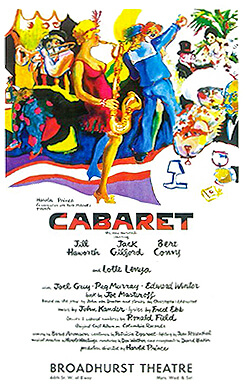
Cabaret is a musical with music by John Kander, lyrics by Fred Ebb, and a book by Joe Masteroff. It is based on the 1951 play I Am a Camera by John Van Druten, which in turn was based on the 1939 novel Goodbye to Berlin by Christopher Isherwood.
Berthold Viertel was an Austrian screenwriter and film director, known for his work in Germany, the UK and the US.
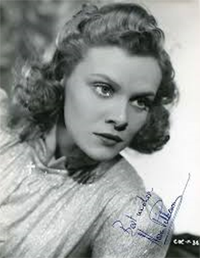
Nova Margery Pilbeam was an English film and stage actress. She played leading roles in two Alfred Hitchcock films of the 1930s, and made her last film in 1948.
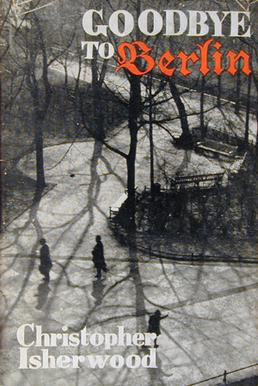
Goodbye to Berlin is a 1939 novel by Anglo-American writer Christopher Isherwood set during the waning days of the Weimar Republic. The novel recounts Isherwood's 1929–1932 sojourn as a pleasure-seeking British expatriate on the eve of Adolf Hitler's ascension as Chancellor of Germany and consists of a "series of sketches of disintegrating Berlin, its slums and nightclubs and comfortable villas, its odd maladapted types and its complacent burghers." The plot was based on factual events in Isherwood's life, and the novel's characters were based upon actual persons. The insouciant flapper Sally Bowles was based on teenage cabaret singer Jean Ross who became Isherwood's friend during his sojourn.
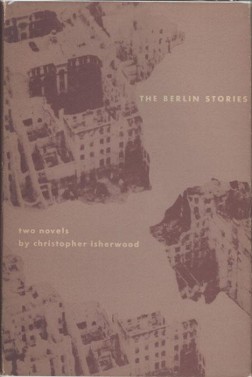
The Berlin Stories is a 1945 omnibus by Anglo-American writer Christopher Isherwood and consisting of the novels Mr Norris Changes Trains (1935) and Goodbye to Berlin (1939). The two novels are set in Jazz Age Berlin between 1930 and 1933 on the cusp of Adolf Hitler's ascent to power. Berlin is portrayed by Isherwood during this chaotic interwar period as a carnival of debauchery and despair inhabited by desperate people who are unaware of the national catastrophe that awaits them.

Ernst Lothar was a Moravian-Austrian writer, theatre director/manager and producer.
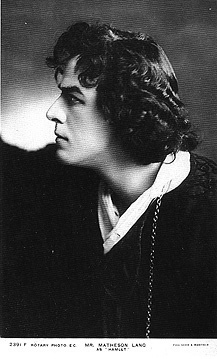
Matheson Alexander Lang was a Canadian-born stage and film actor and playwright. He is best remembered for his theatrical performances in Great Britain in Shakespeare plays.
Prater Violet (1945) is Christopher Isherwood's fictional first person account of film-making. The Prater is a large park and amusement park in Vienna, a city important to characters in the novel for several reasons. Though Isherwood broke onto the literary scene as a novelist, he eventually worked in Hollywood as a screenwriter. In this novel, Isherwood comments on life, art, commercialization of art and Nazism.
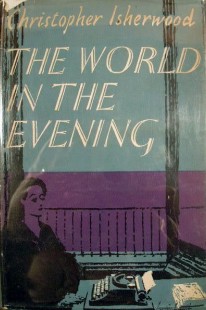
The World in the Evening by Christopher Isherwood is a quasi-fictional account of love, loss, and regret. As in many Isherwood novels, the main character is caught in a contest between his personal egoism and the needs of friends and lovers.
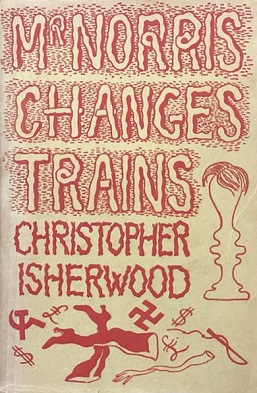
Mr Norris Changes Trains is a 1935 novel by the British writer Christopher Isherwood. It is frequently included with Goodbye to Berlin, another Isherwood novel, in a single volume, The Berlin Stories. Inspiration for the novel was drawn from Isherwood's experiences as an expatriate living in Berlin during the early 1930s, and the character of Mr Norris is based on Gerald Hamilton. In 1985 the actor David March won a Radio Academy Award for Best Radio Actor for his performance in a dramatisation of the novel for BBC Radio 4.
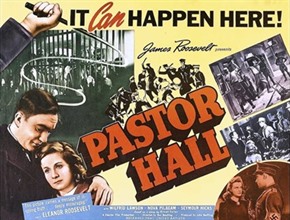
Pastor Hall is a 1940 British drama film directed by Roy Boulting and starring Wilfrid Lawson, Nova Pilbeam, Marius Goring, Seymour Hicks and Bernard Miles. The film is based on the play of the same title by German author Ernst Toller who had lived as an emigrant in the United States until his suicide in 1939. The U.S. version of the film opened with a prologue by Eleanor Roosevelt denouncing the Nazis, and her son James Roosevelt presented the film in the US through United Artists.

Sally Bowles is a fictional character created by English-American novelist Christopher Isherwood and based upon 19-year-old cabaret singer Jean Ross. The character debuted in Isherwood's 1937 novella Sally Bowles published by Hogarth Press, and commentators have described the novella as "one of Isherwood's most accomplished pieces of writing." The work was republished in the 1939 novel Goodbye to Berlin and in the 1945 anthology The Berlin Stories.

The Passing of the Third Floor Back is a 1935 British drama film directed by Berthold Viertel and starring Conrad Veidt, Anna Lee, Rene Ray and Frank Cellier. The film is based on a 1908 play by Jerome K. Jerome and depicts the various small-minded inhabitants of a building and ways they are affected by the arrival of a stranger who works to redeem them. The work had previously been adapted into a 1918 film version by Herbert Brenon. The film or play is referenced in Ngaio Marsh's 1941 novel, Death and the Dancing Footman.

The Three Weird Sisters is a 1948 British melodrama film directed by Daniel Birt and starring Nancy Price, Mary Clare, Mary Merrall, Nova Pilbeam and Raymond Lovell. The film has Gothic influences. The screenplay was adapted by Dylan Thomas and Louise Birt from the novel The Case of the Weird Sisters by Charlotte Armstrong. The film was Birt's feature film directorial debut. It also marked the last screen appearance of Nova Pilbeam, who retired from acting after it was completed.
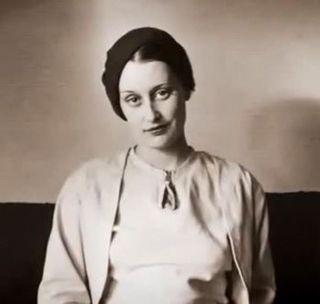
Jean Iris Ross Cockburn was a British journalist, political activist, and film critic. During the Spanish Civil War (1936–39), she was a war correspondent for the Daily Express and is alleged to have been a press agent for Joseph Stalin's Comintern. A skilled writer, Ross worked as a film critic for the Daily Worker. Throughout her life, she wrote political criticism, anti-fascist polemics, and socialist manifestos for a number of disparate organisations such as the British Workers' Film and Photo League. She was a devout Stalinist and a lifelong member of the Communist Party of Great Britain.

I Am a Camera is a 1955 British comedy-drama film based on the 1945 book The Berlin Stories by Christopher Isherwood and the 1951 eponymous play by John Van Druten. The film is a fictionalized account of Isherwood's time living in Berlin between the World Wars. Directed by Henry Cornelius, from a script by John Collier, I Am a Camera stars Laurence Harvey as Isherwood and Julie Harris recreating her Tony Award-winning performance as Sally Bowles.
References
- ↑ BFI Database entry
- ↑ Fryer, p. 140
- ↑ Fryer, p. 210